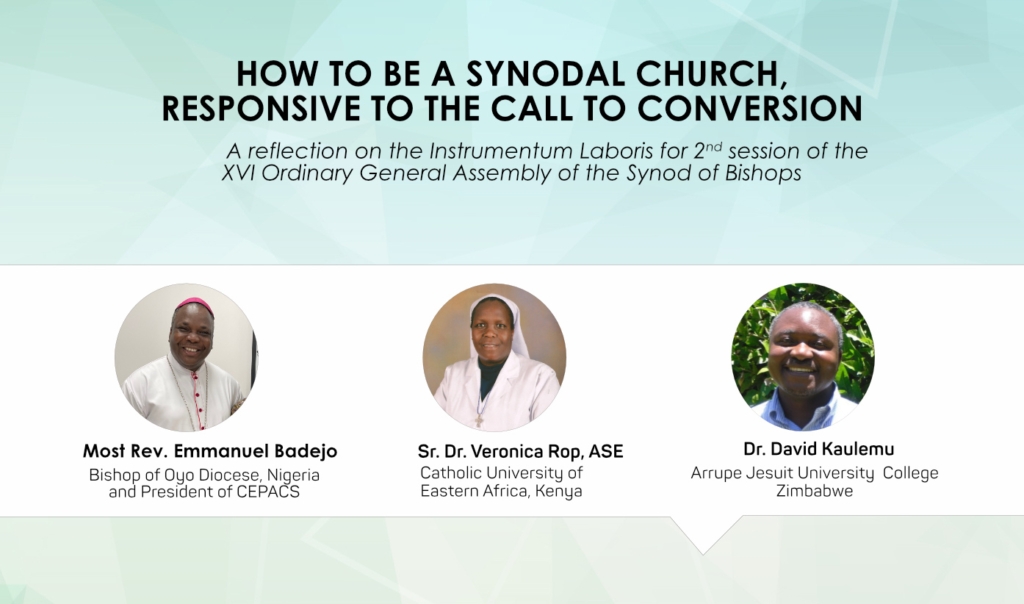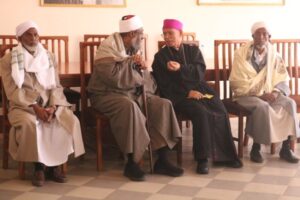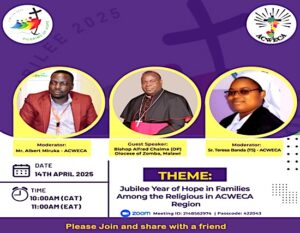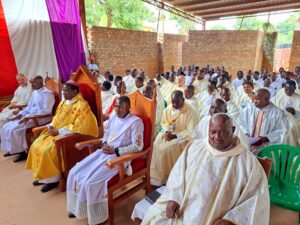AMECEA: Synodality Calls for Respect of Values and Cultures, Says Catholic Nun

Sr. Jecinter Antoinette Okoth, FSSA
As the Church looks forward to the second phase of the 16th Ordinary General Assembly of the Synod of Bishops to take place next month October in Rome, a Catholic nun in Kenya has emphasised that synodality which stresses on journeying together, calls for respecting people’s cultures and values.
Addressing over 90 online participants at a webinar organized on Thursday, August 29, by the Association of Member Episcopal Conferences in Eastern Africa (AMECEA) in partnership with the Association of Consecrated Women in Eastern and Central Africa (ACWECA) the Pan-African Committee for Communication (CEPACS), and in collaboration with the African Synodality Initiative (ASI), Sr. Veronica Jemanyur Rop underlined the aspect of unity in diversity as the Church strives to realize synodality.
“The first session of the synod that was held last year responded to the “what” question in the synodal journey.” This second session is now to respond to the “how” question, which calls for practical ways the Church needs to put in place for synodality to materialize,” The member of the Assumption Sisters of Eldoret (ASE) pointed out in her message and explained, “These practical ways can be realized when we respect the various and diverse members, their contexts, cultures, values, approaches and perspectives towards the common mission.”
Even though Sr. Rop who lectures at the Kenya-based Catholic University of Eastern Africa (CUEA) stresses on respecting the various cultures and values, she narrates that as the Church welcomes synodality, She must listen to the Word and God and to what the Holy Spirit says and understand that “Some cultures need to be challenged and some to be embraced.”
Focusing on the aspect of ‘pathways,’ as highlighted in the Instrumentum Laboris (Working document) for the second session of the synod, Sr. Rop noted that it is “the processes that ensure the care and development of relationships, especially union with Christ, oriented towards mission and the harmony of community life through the ability to face conflicts and difficulties together.”
The Kenyan nun narrates that Instrumentum Laboris has focused on four distinct but profoundly intertwined areas which includes “Formation that calls for listening to the Word of God and the voice of the Holy Spirit, Ecclesial discernment, which leads to the development of participatory process, decision-making and taking processes that respects the different roles and finally mutual relationship that promotes transparency, accountability, and evaluation.”
She further highlighted some practical ways towards a synodal Church and said, “There is need for deepening what we learnt in catechetical classes and understand how the Spirit works in the Church. This calls for both personal and communal initiatives.”
She also stressed on improving transparency and accountability by involving professionals, preparing annual financial statements, and occasionally evaluating the financial progress.
The webinar was organized by AMECEA in collaboration with the African Synodality Initiative (ASI), CEPACS and ACWECA under the theme: ‘How to be a synodal Church, responsive to the call to conversion: A reflection on the Second Instrumentum Laboris.’


